Youn Kyu Lee
ZIUM: Zero-Shot Intent-Aware Adversarial Attack on Unlearned Models
Jul 29, 2025Abstract:Machine unlearning (MU) removes specific data points or concepts from deep learning models to enhance privacy and prevent sensitive content generation. Adversarial prompts can exploit unlearned models to generate content containing removed concepts, posing a significant security risk. However, existing adversarial attack methods still face challenges in generating content that aligns with an attacker's intent while incurring high computational costs to identify successful prompts. To address these challenges, we propose ZIUM, a Zero-shot Intent-aware adversarial attack on Unlearned Models, which enables the flexible customization of target attack images to reflect an attacker's intent. Additionally, ZIUM supports zero-shot adversarial attacks without requiring further optimization for previously attacked unlearned concepts. The evaluation across various MU scenarios demonstrated ZIUM's effectiveness in successfully customizing content based on user-intent prompts while achieving a superior attack success rate compared to existing methods. Moreover, its zero-shot adversarial attack significantly reduces the attack time for previously attacked unlearned concepts.
Two-Stage Architectural Fine-Tuning with Neural Architecture Search using Early-Stopping in Image Classification
Feb 18, 2022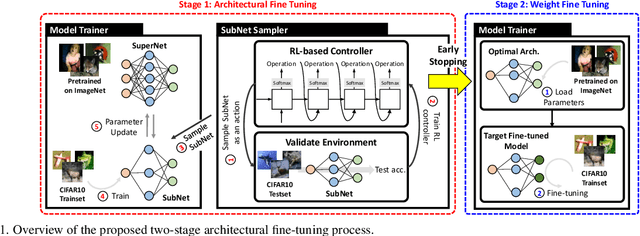
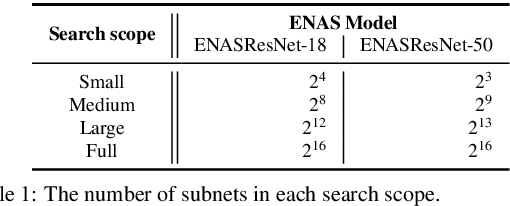
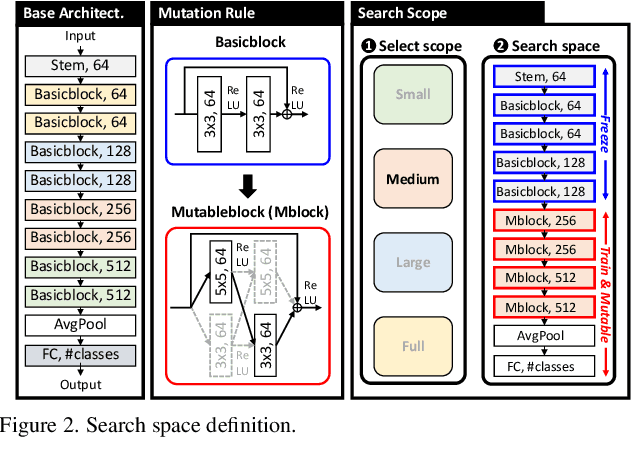
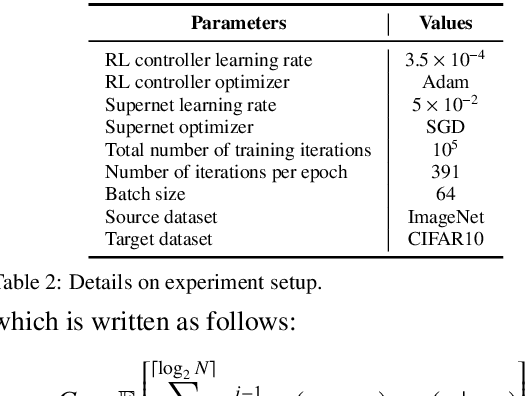
Abstract:Deep neural networks (NN) perform well in various tasks (e.g., computer vision) because of the convolutional neural networks (CNN). However, the difficulty of gathering quality data in the industry field hinders the practical use of NN. To cope with this issue, the concept of transfer learning (TL) has emerged, which leverages the fine-tuning of NNs trained on large-scale datasets in data-scarce situations. Therefore, this paper suggests a two-stage architectural fine-tuning method for image classification, inspired by the concept of neural architecture search (NAS). One of the main ideas of our proposed method is a mutation with base architectures, which reduces the search cost by using given architectural information. Moreover, an early-stopping is also considered which directly reduces NAS costs. Experimental results verify that our proposed method reduces computational and searching costs by up to 28.2% and 22.3%, compared to existing methods.
Trends in Neural Architecture Search: Towards the Acceleration of Search
Aug 19, 2021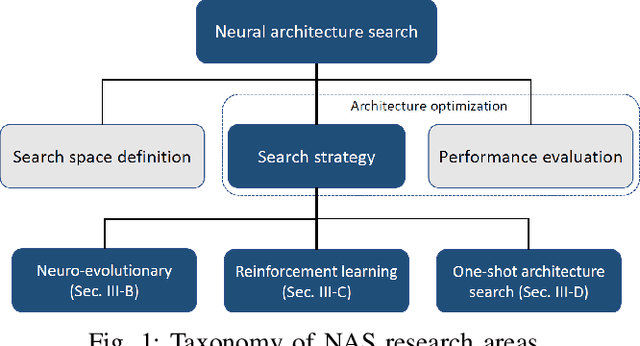
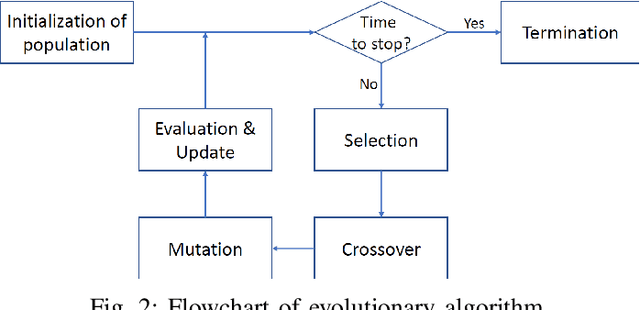
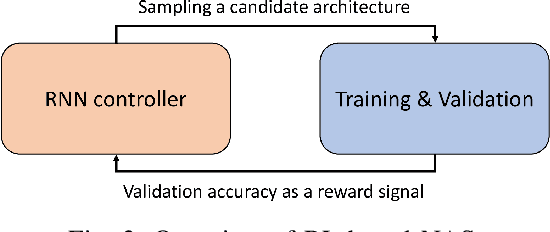
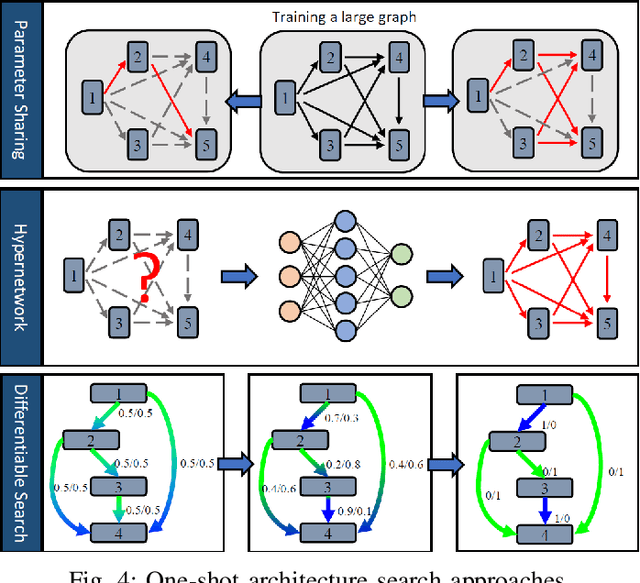
Abstract:In modern deep learning research, finding optimal (or near optimal) neural network models is one of major research directions and it is widely studied in many applications. In this paper, the main research trends of neural architecture search (NAS) are classified as neuro-evolutionary algorithms, reinforcement learning based algorithms, and one-shot architecture search approaches. Furthermore, each research trend is introduced and finally all the major three trends are compared. Lastly, the future research directions of NAS research trends are discussed.
 Add to Chrome
Add to Chrome Add to Firefox
Add to Firefox Add to Edge
Add to Edge